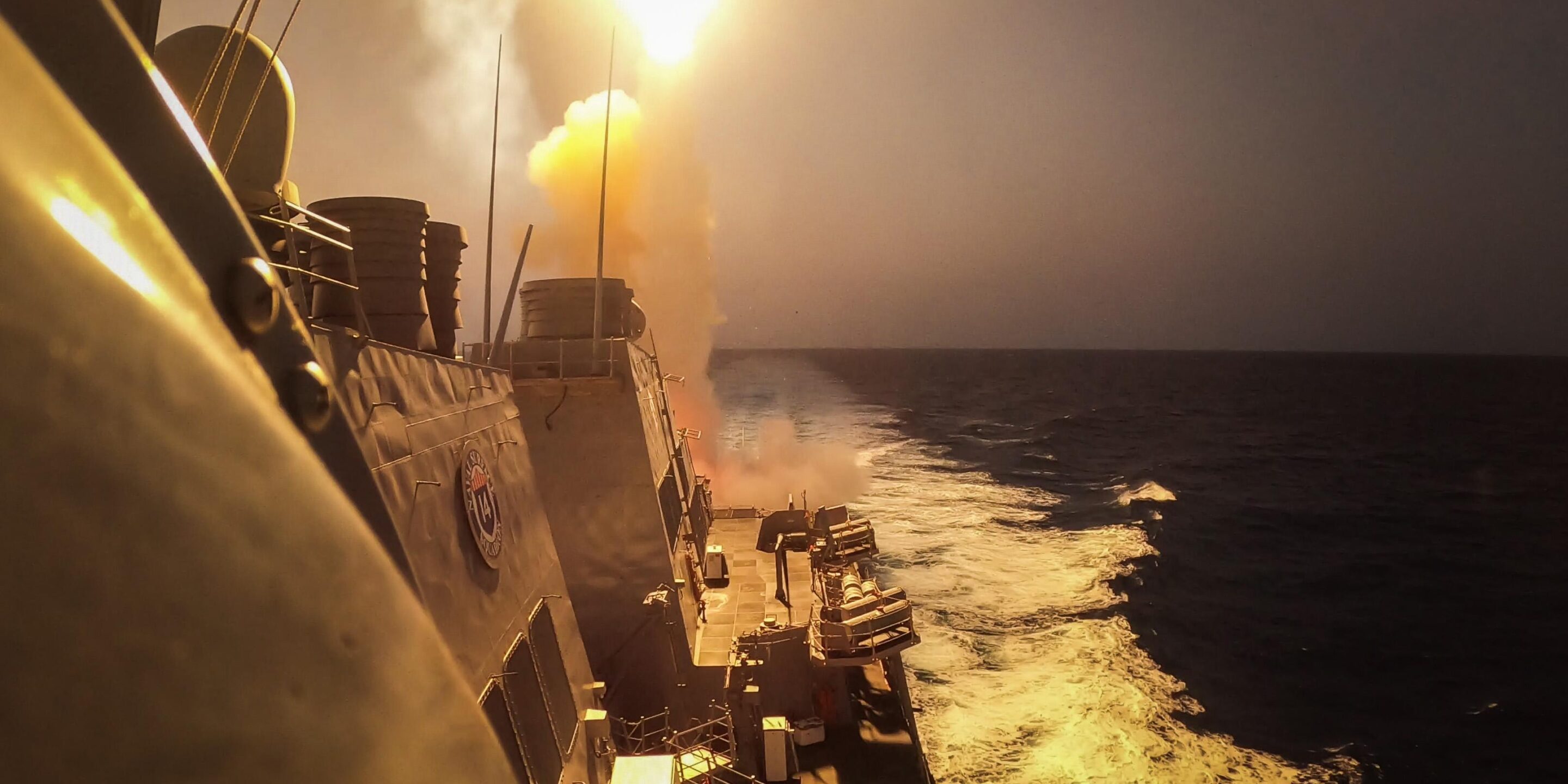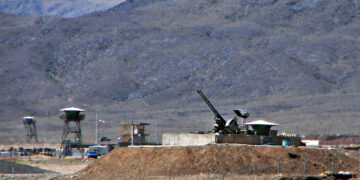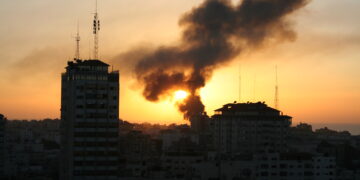December 5, 2023
Blaming Iran for all the violence in the Middle East is not the right tack to take for U.S. policy

The sailors aboard the USS Carney, based in the Red Sea, had a busy weekend—one that could have just as easily turned deadly were it not for the professionalism demonstrated on the ship.
On Sunday, the Yemen-based Houthi group launched four attacks on international vessels transiting the waterway. Some of the ships were slightly damaged by ballistic missiles fired from Houthi-run areas of the country. The USS Carney not only witnessed some of the attacks but also shot down three drones in self-defense as it was responding to a distress call from the civilian ships. The entire episode lasted about five hours in what U.S. Central Command, the U.S. military headquarters in the Middle East, called “a direct threat to international commerce and maritime security.”
This isn’t the first the Houthis, the de facto authorities in Yemen, have flexed their military muscle. The rebel army has periodically fired missiles and launched drones toward Israel, ostensibly in solidarity with Hamas, which is the target of a fierce Israeli military offensive in Gaza. On Nov. 8, the Houthis shot down a U.S. MQ-9 Reaper drone flying off Yemen’s coast. And on Nov. 26, two ballistic missiles were fired from Houthi territory in the vicinity of the USS Mason, another U.S. warship.
A few thousand miles away in Syria and Iraq, the roughly 3,400 U.S. troops based in both countries continue to be on high alert as militia rockets and drones harass their positions. There have been more than 70 such attacks since Oct. 17, prompting President Joe Biden’s administration to retaliate at times with precision airstrikes. The most recent U.S. retaliation occurred over the weekend, when a U.S. airstrike in Iraq killed five militants who were preparing to conduct another drone attack against U.S. facilities. The Iraqi government, which the U.S. supports militarily and diplomatically, has denounced similar U.S. strikes in the past as a violation of Iraqi sovereignty.
More on Middle East

Featuring Rosemary Kelanic
October 16, 2025
Featuring Daniel Davis
October 15, 2025
Events on Iran







